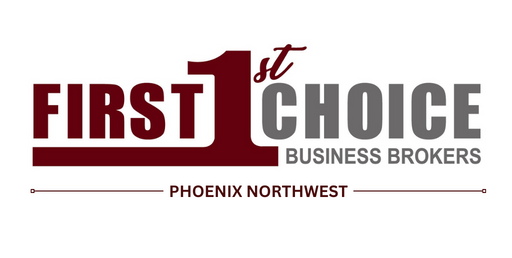How Business Brokers Simplify Complex Transactions
Streamlining the Valuation Process for Maximum Accuracy and Fairness

The process of buying or selling a business is often far more intricate than it initially appears. Complex financials, legal requirements, and emotional investments can create significant hurdles for both buyers and sellers. Business brokers play a crucial role in navigating these complexities, ensuring a smoother and more efficient transaction for all parties involved. Here’s how experienced brokers simplify the process from start to finish.
Valuation Expertise for Accurate Pricing
Determining the right price for a business is one of the most sensitive and vital elements in any transaction. Sellers often have emotional attachments to their businesses, which can cloud objective judgment and lead to unrealistic price expectations. On the other hand, buyers may attempt to undervalue the business to negotiate better terms.
Business brokers bring much-needed objectivity to the table. They utilize a combination of industry-specific benchmarks, current market conditions, and in-depth financial analysis to provide accurate and fair valuations. These professionals often rely on tools such as comparable sales data, earnings multiples, and asset-based valuation models to ensure pricing aligns with market realities.
An accurate valuation sets the stage for serious negotiations, attracting qualified buyers who are more likely to engage in a deal. It also reduces the time a business sits on the market and minimizes the back-and-forth that can stall or kill a transaction.
Marketing and Confidentiality Management
Effective marketing is essential to sell a business, but it must be done with discretion to avoid alarming employees, suppliers, or clients. Business brokers strike a delicate balance by leveraging targeted marketing techniques while maintaining strict confidentiality.
They create professionally crafted business profiles that highlight the business's strengths—such as financial performance, customer base, competitive advantages, and growth potential—without disclosing sensitive details like the business name or location. Brokers also know where and how to market these listings, often using exclusive networks, buyer databases, and niche industry platforms.
In addition, brokers screen potential buyers for financial capability, seriousness, and strategic fit before allowing them access to more detailed information. This protects the seller's time and prevents leaks that could destabilize ongoing operations.
Negotiation Skills to Secure Optimal Deals
Negotiations in business transactions are rarely straightforward. They involve high financial stakes, diverging priorities, and often emotionally charged decisions. This is where a business broker’s negotiation expertise becomes invaluable.
As neutral intermediaries, brokers keep negotiations professional and focused. They help both parties understand each other's priorities and guide discussions toward win-win outcomes. Their experience allows them to anticipate common pitfalls and suggest creative deal structures—such as earn-outs, seller financing, or phased payments—that can help bridge valuation gaps or risk concerns.
By managing the flow of communication and defusing tensions, brokers prevent breakdowns in talks and keep the deal progressing smoothly toward closing.
Coordinating Due Diligence
Due diligence is the buyer’s opportunity to verify the accuracy of the business's financials, legal standing, and operations. However, this phase can be time-consuming and complex, often involving multiple parties like accountants, attorneys, and consultants.
Business brokers play a central role in organizing and managing the due diligence process. They help sellers prepare by compiling accurate and up-to-date documentation—including financial statements, contracts, employee records, and tax filings—before the process begins. This proactive preparation not only speeds up the review but also builds buyer confidence.
For buyers, brokers help ensure thorough due diligence by coordinating with professionals, asking the right questions, and flagging any red flags that could affect the deal's viability. Their involvement helps avoid surprises late in the process and paves the way for a successful closing.
Managing Legal and Regulatory Compliance
Business transactions involve a web of legal and regulatory requirements that must be carefully navigated to ensure the deal is binding, enforceable, and risk-free. From licenses and permits to contracts and compliance disclosures, every detail matters.
Business brokers work closely with legal professionals to manage this complexity. They help ensure that essential documents—like non-disclosure agreements (NDAs), letters of intent (LOIs), asset purchase agreements, and non-compete clauses—are correctly drafted and reviewed.
Brokers also understand local, state, and federal regulations that may impact the sale, including zoning laws, franchise agreements, and industry-specific compliance requirements. Their knowledge helps avoid costly legal missteps and ensures the transaction adheres to all applicable laws.
Facilitating Financing Options
Financing is often a roadblock in small to mid-sized business sales. Buyers may have the desire to purchase a business but lack the capital to complete the deal without assistance.
Business brokers help remove this barrier by connecting buyers with financing sources such as SBA (Small Business Administration) loans, private lenders, or seller financing options. They assist in preparing loan applications and packaging financial documents in a way that increases the likelihood of approval.
Brokers also help both parties explore alternative funding structures when traditional financing isn’t viable, ensuring deals can still move forward. Their understanding of financing logistics and lender requirements makes them essential in closing the funding gap.
Guiding the Transition Process
Even after a sale is agreed upon, the work isn't over. Transitioning the business to a new owner can be a fragile period, especially when customers, employees, and operations are involved.
Business brokers help facilitate a smooth transition by crafting a post-sale plan that includes knowledge transfer, employee retention strategies, and customer communication. They ensure that both the buyer and seller are clear about their roles during the handover phase and that key stakeholders remain informed and reassured.
Brokers often stay involved even after the sale to resolve any issues that arise, maintaining stability and ensuring the business continues to perform under new ownership.
Conclusion
Buying or selling a business involves a web of financial, legal, and operational complexities that can easily overwhelm even experienced entrepreneurs. Business brokers serve as expert navigators through this process, offering critical support in areas like valuation, marketing, negotiation, due diligence, legal compliance, and financing. Their ability to manage each phase with precision not only reduces risk but also ensures that transactions are handled efficiently, discreetly, and professionally.
By partnering with a skilled business broker, buyers and sellers gain more than just a facilitator—they gain a strategic advisor who safeguards their interests and drives the deal toward a successful outcome. Whether you're planning to sell your business or acquire one, a broker’s expertise can transform a potentially stressful process into a smooth and rewarding experience. In an environment where every decision matters, having a knowledgeable broker by your side is a smart, strategic move.
How do business brokers determine the right selling price for a business?
Business brokers use a combination of financial analysis, industry benchmarks, and current market trends to assess a business’s fair market value. They consider factors like cash flow, assets, liabilities, and comparable sales to ensure the pricing is competitive yet realistic—helping attract serious buyers and avoid prolonged negotiations.
Can a business be marketed without revealing its identity?
Yes. Business brokers specialize in confidential marketing strategies. They create anonymized business profiles that highlight key strengths without disclosing sensitive information such as the business name, location, or client details. Only vetted, financially qualified buyers are given full access after signing non-disclosure agreements (NDAs).
What role does a broker play during negotiations?
Brokers act as impartial intermediaries during negotiations. They help manage expectations, keep discussions focused on business terms rather than emotions, and often propose creative solutions—such as seller financing or performance-based payouts—that satisfy both parties. This helps ensure smoother, more productive negotiations.
How do business brokers assist with due diligence?
Brokers prepare sellers ahead of time by organizing financial records, contracts, and operational data to streamline the buyer's review process. They also coordinate with legal and financial professionals, helping both parties stay on track, identify red flags early, and avoid delays that could derail the transaction.
Can brokers help buyers secure financing?
Absolutely. Business brokers often work with a network of lenders and are familiar with financing options like SBA loans, private funding, and seller financing. They assist with packaging financial documents and guiding buyers through the application process to increase the likelihood of loan approval and deal completion.

Get in Touch:
First Choice Business Brokerage Phoenix
📍 21640 N 19th Ave Suite C9, Phoenix, AZ 85027
📞 (623) 888-6190
More Blogs For You





